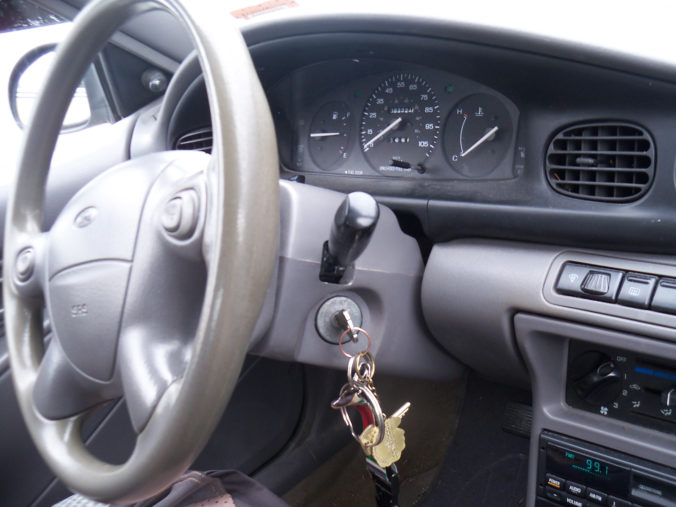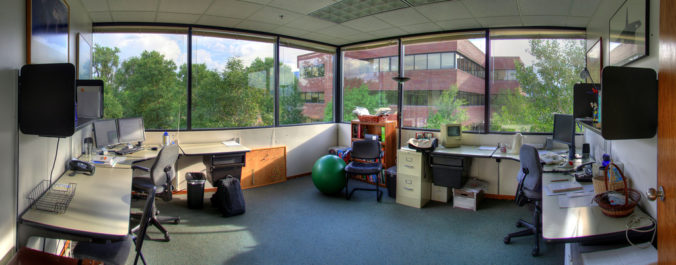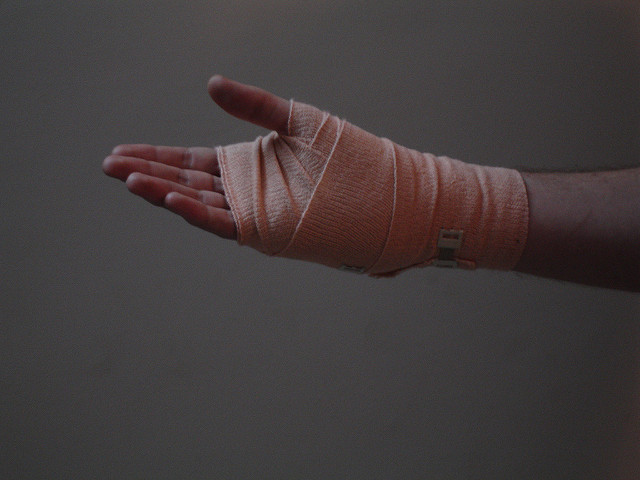I locked my keys in my van last week. For the second time. When I drove my trusty Odyssey, I cannot recall a single time that I had the keys on the wrong side of the locked door, but in just a few months I’ve managed to be dependent on AAA and a nearby friend to get back in the driver’s seat.
The function of my Toyota is no different than my Odyssey; both have “clickers.” (This is how all people refer to the keyless entry, right? “Clicker?” Related: my family never looked for the “remote control” but rather we had a “flipper” that, you know, flipped through the channels. I have a dialect unique to my upbringing.)
On both occasions of zealous locking, after I arrived at my destination, I put my keys in my purse. My keys have a home in a little side pocket. My habit is to put them into their pocket, put my purse on my shoulder and hit the lock on the door on the way out. I’m too impatient to wait on the sliding doors to shut before using the clicker to lock up.
On the days in question, after mindlessly putting my keys in my purse, I decided I didn’t need the huge bag and only grabbed my wallet. As my door shut, I literally said out loud (on the phone, which is another factor in the equation): I just locked my keys in my car. I knew it before I was 5 steps away.
I’m fascinated by the way our habits serve us. I’m a creature of habit: I love rhythm and order. I complete many of the same tasks, in the same way, each day. I can be in and out of the shower in 5 minutes because I have an order (wet hair, shampoo, soap up, rinse shampoo, condition, shave, rinse conditioner) and it requires zero thought. I can easily pull together a dinner from my top 5 meals (vegetable soup, kitchari, fried rice, chicken soak, sloppy joes) without giving it focus because my habits serve me well.
Yet there are ways – spaces in our lives – in which our habits don’t serve us. Such as the way in which I’m unable to pull dates from my memory bank because I’m completely dependent on my visual (paper!) calendar. I have taught myself to give zero brain space to times, days or dates because once it’s written down, it’s dismissed from my brain. If you ask, “hey what are you doing next Tuesday? Want to go to London with me to see Adele for free?” I would STILL have to look at my calendar to see if the youngest goes to preschool that day.
So much of the ways we live our lives come down to the smallest tendencies to which we give little thought. The order you run errands, the process of putting kids to bed, how we open a car door and slide into the seat (ask your chiropractor if that one has consequence!).
Sometimes, habits fail us. Our mindless dependency, while advantageous in the broad sweep, kicks us when we’re not paying attention.
How often do we call into question our habits? Not just the way in which we complete tasks, but our patterns of thinking and believing as well? Do we really believe a particular idea, or have we created a habit of thought and operate from that framework? Is that way of thinking still serving us and helping us grow?
What if our habitual thoughts are actually hindering relationships, opportunities for meaningful work, or new experiences? If my starting belief is that anything fun costs too much money (because, for a family of 6, it seems everything costs too much money), then I will continue to shut down on requests to try new activities – and in the meantime, completely miss out on the joy of discovering a new park or finding a trail. The knowledge that things are often expensive for large families will serve me, but depending on that habit to make our decisions will cut us off from experiences of delight.
So in my next moment of frustration, conflict or disappointment, I wonder how it would look to ask what habit am I depending upon right now? What is the underlying pattern of behavior or thought? And if I prefer a different outcome – say, perhaps, to stop locking my keys in the car – what new habit might be formed that could better serve my situation?


